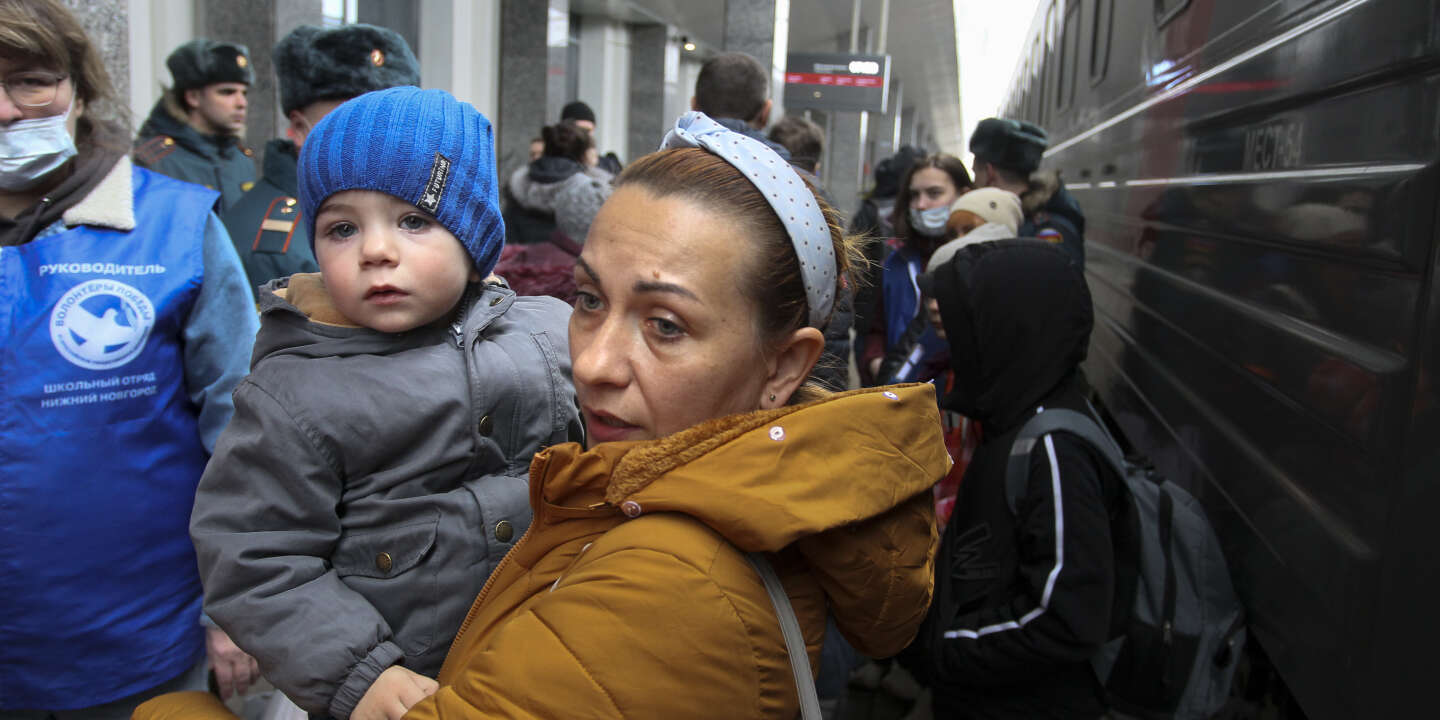
Published on :
While Vladimir Putin announced on Thursday that Russian gas must now be paid in rubles, the European Union, Moscow’s largest customer, resisted a categorical refusal and confirmed to consider other scenarios for its supply. France 24 works with Francis Perrin, specialist in energy issues at Iris, to decipher this new phase of the impasse surrounding the war in Ukraine.
Could the war in Ukraine lead to a premature cessation of Russian gas exports to Europe? While European Union (EU) countries had decided to exclude gas contracts from their sanctions against Russia, Vladimir Putin announced on Thursday March 31 that “unfriendly” countries would henceforth pay their bills in rubles†
A request deemed unacceptable by the EU, the world’s largest buyer of Russian gas, which called on Russia to honor its contracts, which provide for payment in euros and sometimes dollars.
Faced with threats from Moscow, which now claims it is considering targeting the Asian market, the French and German governments indicated on Thursday that they prepare for a possible cessation of Russian gas imports†
To analyze the possible implications of such a decision for both the EU and Russia, France 24 spoke with Francis Perrin, research director of the Institute of International and Strategic Relations (Iris), a specialist in energy issues.
France 24: How do you analyze Vladimir Putin’s announcement? European leaders claim to have received pledges to continue to buy gas in euros, is Russia’s threat credible?
Francis Perrin: This threat is not really credible. Because of two reasons.
First, it contradicts the content of the contracts binding Gazprom and the European gas companies, which provide for payment in euros and sometimes in dollars. Unilaterally changing such contracts is illegal, and Vladimir Putin knows that.
The other reason is that there are multiple stories from Moscow: Vladimir Putin announcing the obligation; the same Vladimir Putin who reassures Olaf Scholz and Mario Draghi by telling them that nothing changes, and Kremlin spokesman Dmitry Peskov, who speaks of a phased implementation payment in rubles.
So in my opinion it is a bluff, of which Vladimir Putin is a great specialist. As so often, he makes a powerful statement to gauge reactions and adjust his strategy.
Paris and Berlin claim to be preparing for a possible halt to Russian gas imports, do they have enough options to withdraw? †
First of all, it must be said that if the Europeans have not imposed sanctions on Russian gas – which represents 45% of their imports – it is because they cannot do without it in the short term. However, with the war in Ukraine, a plan is now on the table to significantly reduce this dependence by 2022, with a view to a total withdrawal of Russian gas by 2027. There are three levers for this: finding new natural gas suppliers, replacing part of of gas consumption with other energy sources, in particular renewable sources, and finally save on current consumption. This strategy should reduce Russian imports by at least a third this year.
As for new suppliers, a contract has already been signed with the United States to increase supplies of liquefied natural gas, which should eventually offset a third of current Russian imports. Other potential partners include Qatar, Algeria, Nigeria, Egypt, Norway and even Azerbaijan.
Russia is Europe’s largest gas supplier and Europe’s most important customer. In the current context of war, is Vladimir Putin really strong on this issue? †
Russia is not in a strong position for a simple reason: it is even more dependent on the European market than Europe is on Russian exports. In other words, Moscow has more to lose in this matter than Europe.
It is of course not easy for the EU to turn the Russian page, but it already has enough infrastructure to increase imports of liquefied natural gas, at least initially. If these deliveries cost more, they have a major advantage: that they are more flexible, because they are delivered by boat and not through gas pipelines. This flexibility provides greater security of supply as it makes it easier to diversify resources.
On the Russian side, the industry is mainly focused on Europe and major investments in infrastructure will be needed to export the gas massively by sea, which will require liquefaction. Outside the EU, Moscow exports gas to Japan, Korea and China. The first two, allies of the United States, will stand behind their position. There remains China, which is certainly an ally of Russia, but with whom trade deal talks are not easy, especially when the balance of power is in its favour.
Of course, Russia will also prospect to find new customers, but the situation will be more difficult, because it has fewer partners than Europe, but also fewer potential partners.
>> To (re) see † FOCUS – The European Union must rethink its energy strategy



